iRWD

Infrastructure for secure generation of Real World Evidence from Real World Data from the Andalusian Health Population Database
Funded by the programme R&D infrastructures from the Andalusian Plan for Research, Development and Innovation (PAIDI 2020, IE19_259 FPS)
This computational infrastructure constitutes a crucial element to support the ongoing transformation of the Andalusian Health System from a passive data warehouse to an active entity able of managing, interpreting and generating Real World Evidence (RWE), on new biomedical knowledge from its Real World Data (RWD). This infrastructure is located within the security ring of the Andalusian Health System and is suitable for the analysis of clinical data, subjected to strict security restrictions. In particular it is an appropriate environment to work in collaboration with the Health Population Database la base poblacional de salud (BPS), an unparalleled resource that contains comprehensive clinical data (diagnosis, treatments, drug prescriptions, analytics, usage of the health system, etc.) for more than 13 million of patients, collected since 2001. The analysis of BPS RWD with artificial intelligence (AI) methodologies has an immense potential of generation of biomedical knowledge of rapid translation. Due to this, the infrastructure comprises not only conventional CPUs but also GPUs for massive parallel computation required by AI and machine learning methodologies.
Data privacy and GDPR-compliant management of clinical data
General Data Protection Rules (and specifically the Spanish regulation (Ley Orgánica de Protección de Datos Personales y Garantías de los Derechos Digitales) explicitly prohibits the management of clinical data with some exceptions. One of these is the secondary use for research under certain conditions. As explained in the document BPS and research (Base Poblacional de Salud e Investigación), data request requires of:
Because GDPR, the extraction of sensitive data from the secure environment of the BPS to external computing facilities for its study is problematic given that, even anonymized, the risk of re-identification is not negligible and poses serious ethics challenges.
However, there is a solution that does not compromise data privacy: analyzing the data within the corporative network of the Andalusian Health System. Although, health systems typically do not possess computation facilities (not to mention highly parallel computation facilities to run AI algorithms), this infrastructure has been set up to solve this deficiency.
This infrastructure brings to the Andalusian Health System the necessary computation capacity, including specific equipment to run AI algorithms, for carrying out RWD analysis internally. Thus, the infrastructure endows the Andalusian Health System with a transformative drive change from a mere passive data warehouse to a generator of biomedical knowledge of rapid translation.
The schema depicts this original infrastructure, where clinical projects are outlined and once considered, they are transformed into reports of clinical studies that are submitted to the Ethics Committee, and once authorized are submitted to BPS, along with the corresponding assessment of impact on data privacy. Data are transferred to the infrastructure, always within the secure environment of the corporative network of the Andalusian Health System. There, the study is carried out by FPS personnel, from the Health system, and the results, that do not contain any private data, can be extracted from the secure environment.

This computational capacity along with the immense amount of high-quality clinical data stored in BPS, makes of the Andalusian Health System an international reference for this innovative concept of biomedical research by endowing it with the possibility of analyzing their own data, opening the possibility to carry out innumerable RWD analyses and facilitating the secondary use of clinical data.
Loucera C, Peña-Chilet M, Esteban-Medina M, Muñoyerro-Muñiz D, Villegas R, Lopez-Miranda J, Rodriguez-Baño J, Túnez I, Bouillon R, Dopazo J, Quesada Gomez JM.
Real world evidence of calcifediol or vitamin D prescription and mortality rate of COVID-19 in a retrospective cohort of hospitalized Andalusian patients. Sci Rep. 2021 Dec 3;11(1):23380. doi: 10.1038/s41598-021-02701-5.
Loucera C, Perez-Florido J, Casimiro-Soriguer CS, Ortuño FM, Carmona R, Bostelmann G, Martínez-González LJ, Muñoyerro-Muñiz D, Villegas R, Rodriguez-Baño J, Romero-Gomez M, Lorusso N, Garcia-León J, Navarro-Marí JM, Camacho-Martinez P, Merino-Diaz L, Salazar A, Viñuela L, The Andalusian Covid-Sequencing Initiative, Lepe JA, Garcia F, Dopazo J.
Assessing the Impact of SARS-CoV-2 Lineages and Mutations on Patient Survival. Viruses. 2022 Aug 27;14(9):1893. doi: 10.3390/v14091893.
Carlos Loucera, Rosario Carmona, Marina Esteban-Medina, Gerrit Bostelmann, Dolores Muñoyerro-Muñiz, Román Villegas, María Peña-Chilet, Joaquin Dopazo.
Real-world evidence with a retrospective cohort of 15,968 Andalusian COVID-19 hospitalized patients suggests 21 new effective treatments and one drug that increases death risk. medRxiv 2022.08.14.22278751; doi: https://doi.org/10.1101/2022.08.14.22278751
SEC22 aborda, desde un enfoque integral del paciente y con una visión multidisciplinar, un completo programa de prevención, diagnóstico y tratamiento de las enfermedades cardiovasculares.
Cardiólogos, médicos de familia y atención primaria, internistas enfermeros, técnicos, investigadores, etc. pueden participar de los más recientes avances en la cardiología, en un evento en el que la innovación y la tecnología conviven con la proyección en la sociedad de la salud cardiovascular.
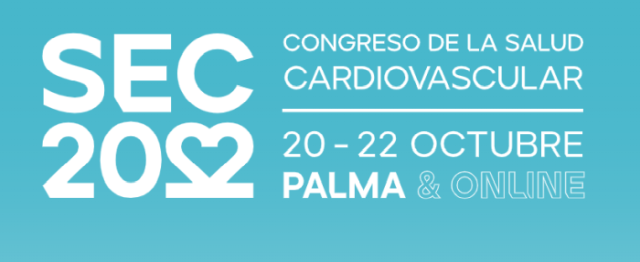
Manuel Anguita: Relación entre la utilización de los fármacos antitrombóticos y la incidencia de ictus y sangrados mayores en pacientes con fibrilación auricular en el período 2012-2020 en Andalucía
Carlos Loucera, Rosario Carmona, Gerrit Bolstelmann, Joaquín Dopazo, Manuel Anguita Sanchez.
Manuel Anguita: Relación entre el tipo de tratamiento antitrombótico y el riesgo de ictus y sangrados mayores. Resultados de un estudio poblacional en Andalucía.
Carlos Loucera, Rosario Carmona, Gerrit Bolstelmann, Joaquín Dopazo, Manuel Anguita Sanchez.
43 congreso de la AEEC. Congreso de la Salud Cardiovascular.
Para mas información descarga aquí el programa en PDF.
XXII Congreso de la Sociedad Española de Directivos de Atención Primaria, SEDAP, que tendrá lugar en Sevilla, en el Hotel Meliá Lebreros, del 8 al 10 de junio. En esta ocasión, el lema de nuestro congreso anual es 'El futuro es ahora'; ponentes y asistentes debatiremos sobre los principales retos del sistema sanitario.
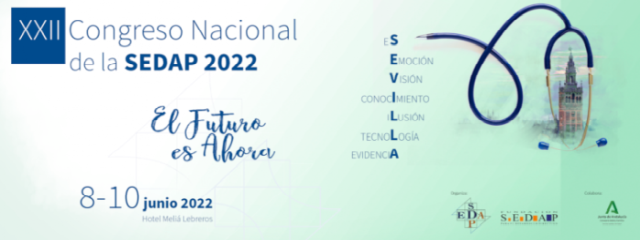
Para mas información descarga aquí el programa en PDF.
XXII Congreso Nacional de la SEDAP, Sevilla, 8-10 junio, 2022.
The International Virus Bioinformatics Meeting 2022 (ViBioM 2022) took place online, 23–25 March 2022. The meeting was jointly organized by the European Virus Bioinformatics Center (EVBC), the Institute of Agrochemistry and Food Technology (IATA-CSIC), and the University of Valencia.

Carlos Loucera , Javier Perez-Florido , Carlos S. Casimiro-Soriguer , Francisco Ortuño , Rosario Carmona , Gerrit Bostelmann , Luis Javier Martinez-Gonzalez , Dolores Muñoyerro-Muñiz , Roman Villegas , Jesus Rodriguez-Baño , Manuel Romero , Nicola Lorusso , Javier Garcia-León , Jose M. Navarro-Mari , Pedro Camacho-Martinez , Laura Merino-Diaz , Adolfo de Salazar , Laura Viñuela , Jose A Lepe , Federico Garcia , and Joaquin Dopazo.
5th International Virus Bioinformatics Meeting, (ViBioM 2022), Valencia, 23 March, 2022
El Congreso ha adoptado el lema de LOS DESAFÍOS DE HOY, LA CALIDAD DE MAÑANA. Y los Comités Científico y Organizador han aceptado el reto, el desafío, de presentar en Zaragoza el que esperamos sea el camino de mejora continua en los servicios y cuidados que prestamos a las personas que atendemos o atenderemos. La “Calidad en tiempos difíciles”, la “Inteligencia artificial”, las “Relaciones con los pacientes”, entre otras, serán algunas de las áreas temáticas que se abordarán.

Joaquín Dopazo.
XXXVIII Congreso de la Sociedad Española de Calidad Asistencial. Zaragoza, 19-21 de octubre de 2022.
The International Virus Bioinformatics Meeting 2022 (ViBioM 2022) took place online, 23–25 March 2022. The meeting was jointly organized by the European Virus Bioinformatics Center (EVBC), the Institute of Agrochemistry and Food Technology (IATA-CSIC), and the University of Valencia.
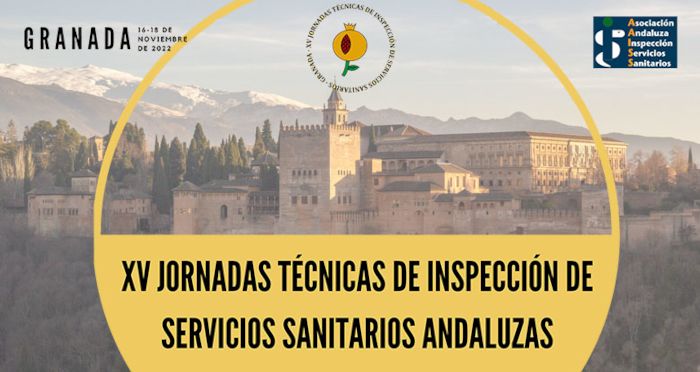
Joaquin Dopazo.
XV JORNADAS TÉCNICAS DE INSPECCIÓN DE SERVICIOS SANITARIOS DE ANDALUCÍA. Granada, 16, 17 y 18 de noviembre de 2022.
MedInBio nació en 2017 para crear un espacio de comunicación entre mundos muy distintos: los profesionales médicos, los investigadores y los empresarios del sector salud y tecnología. Desde entonces multitud de organizaciones públicas y privadas se han sumado al foro, hasta convertirlo en un evento de referencia en transferencia de conocimiento en el sector salud.
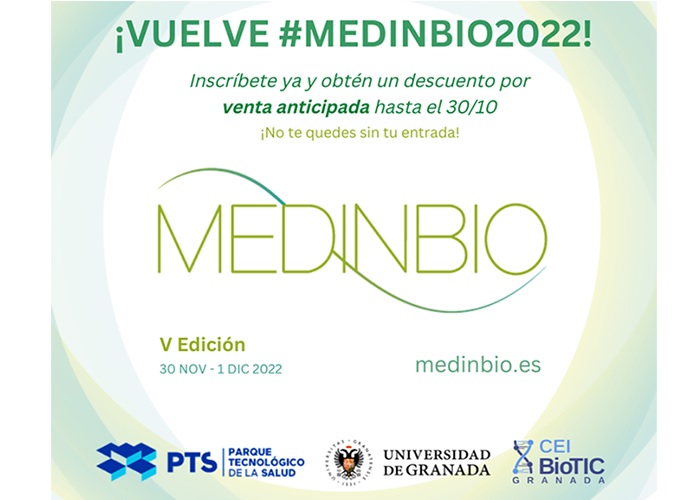
Joaquín Dopazo.
MEDINBIO. Granada, 1 de diciembre de 2022.
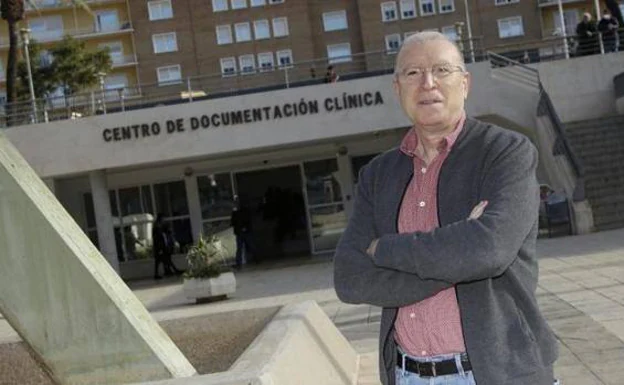
Un trabajo llevado a cabo por el grupo de investigación liderado por Joaquín Dopazo, que está al frente del área de Bioinformática de la Fundación Progreso y Salud de la Junta de Andalucía, ha analizado la historia clínica de casi 16.000 pacientes y ha puesto de relieve que aquellos que tomaban algún fármaco para restituir la vitamina D durante los 15 días previos al ingreso hospitalario experimentaron una mayor tasa de supervivencia frente al Covid-19.
Ahora ese estudio se encuentra entre las 100 publicaciones más descargadas de 2021, según la revista 'Scientific Reports', del grupo editorial Nature. En ese año se publicaron más de 24.500 artículos científicos.